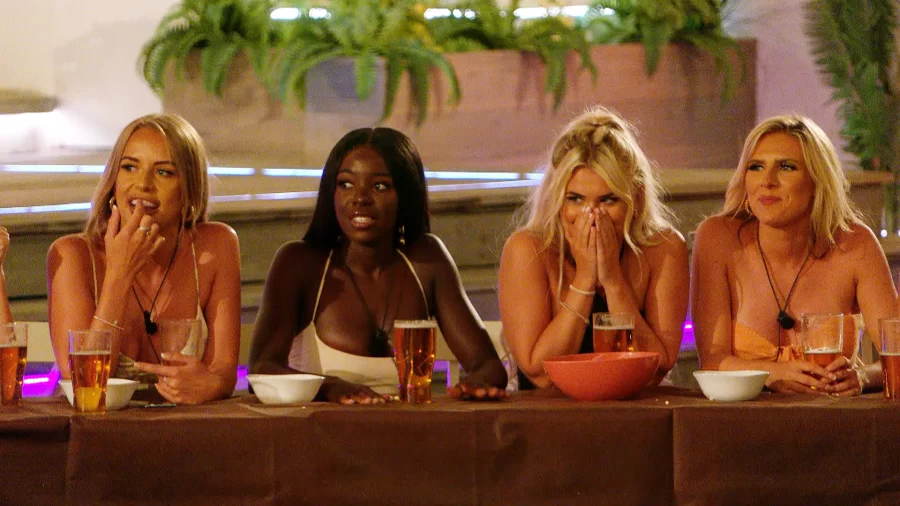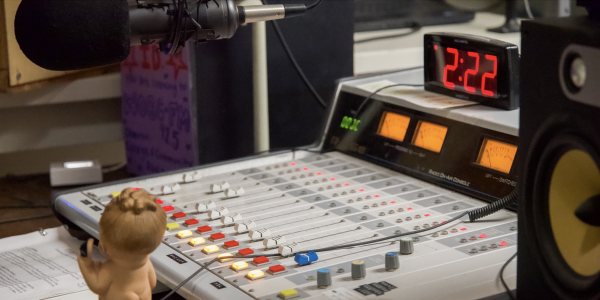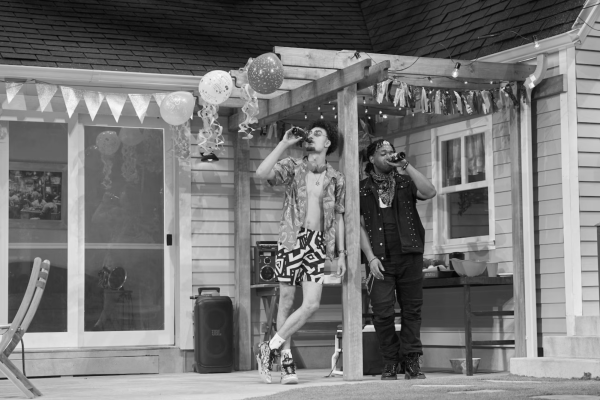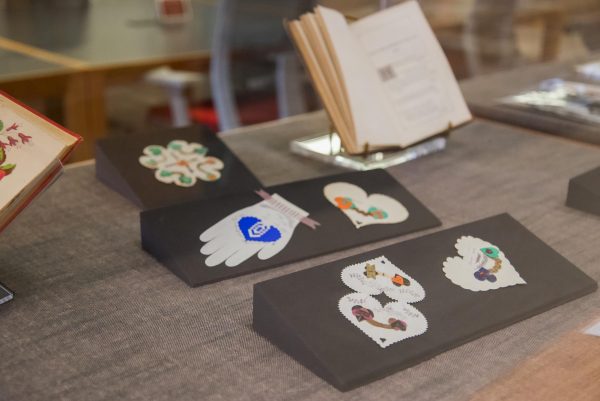Love Island, an Experiment with Control, Surveillance
Love Island is a popular British reality show that brings attractive singles hoping to find love to Mallorca.
In the past year, my housemates and I have watched nearly five seasons of Love Island, a popular British dating show in which an array of attractive singles search for love while living in a secluded Spanish villa for an entire summer. The show plays out in real time five nights a week, as the show is filmed, edited, and released in the span of 24 hours. Because the contestants have no access to the outside world, the producers have to find creative ways to drum up entertainment — throughout the season, they have contestants play games like “Snog, Marry, Pie” or “Truth or Dare,” which stir up the kind of dramatic scenes typical on reality television. While this sort of devious plotting is customary on the show, there was one particular incident that completely changed the way I think about my engagement with the genre.
The event in question occurred in the show’s latest season when Faye Winter, a contestant who had been on since the start of the season, and her long-time partner, Teddy Soares, got into an uncomfortably one-sided screaming match. That night, the producers had set up the Islanders with bags of popcorn and a projector, treating them to a movie night in which clandestine indiscretions would be aired for all to see, revealing potential betrayals. After a clip was shown of Soares calling another woman attractive, Winter, who had mentioned frequently that past heartbreaks left her with serious trust issues and had been noticeably struggling with her mental health, flew into a fit of paranoia.
Following the episode’s release, Ofcom, a government-approved regulatory authority for broadcasting in the UK, received an unprecedented number of complaints about the show’s ethics. While these kinds of outbursts are standard practice on shows like Love Island, the three recent suicides of former contestants Sophie Gradon and Mike Thalassitis and host Caroline Flack have put the show under an especially intense microscope.
Many former contestants have accused the show of “brainwashing” and have talked openly about their struggles to cope with increased media attention, the isolating environment of the villa, and the pressures of having cameras follow their every move for ten weeks straight. Perhaps these experiences reveal that we have entered a new, darker era of reality television.
While the early 2000s may have brought us unabashedly ruthless shows like 16 and Pregnant and America’s Next Top Model, the producers of those shows flagrantly admitted to manipulating vulnerable people for ratings. And while there are certainly problems with that, what we seem to be moving towards now — an era in which producers and networks have developed far more surreptitious and successful surveillance tactics — seems much scarier.
According to a New York Times article by Mark Andrejevic, author of Reality TV: The Work of Being Watched, “Reality TV is not going away any time soon [because] its production fits neatly with the logic of the emerging surveillance economy. It provides relatively cheap and flexible programming for a massively multichannel era by inviting cast members to submit to monitoring as a form of participation, self-expression and even therapy.”
Reality television has sanitized the vision of the panopticon, a sophisticated system of surveillance which uses control to placate its victims. As a result, the appeal of the show becomes much more about the exertion of authority over contestants than the plot of the show itself. Seeing contestants freak out over contrived situations, like Faye and Teddy’s fight, satisfies the viewer’s need for drama but also creates an oppressive scrutiny directed toward the televised, coerced behavior of real human beings.
As popular YouTuber Broey Deschanel discusses in her video “Love Island: A Flirtation with Surveillance,” numerous “former contestants have criticized the show for its failure to provide substantial psychological support or any sort of media training that would protect them from abuse. … Love Island has raised very serious questions about the nature of reality TV and its duty of care to the real people who participate in it.”
While the experiences of contestants worry me, it is the viewers’ appetite for this type of media that concerns me most — a group that includes myself. Especially in light of the internet’s recent obsession with shows like Love is Blind and The Ultimatum: Marry or Move On, I keep asking myself: Why do I enjoy watching television that manipulates people; purposefully isolates them from the outside world; deprives them of adequate mental health care; and spies on them for long, harrowing periods of time? Lily, I mean, really? Isn’t that sort of depraved and perverse?
I’m not sure I know the answer, but at the end of his article, Andrejevic asks: “So is reality TV lowering the bar or is it as worthwhile as anything that’s been on TV?” On both accounts, he says yes.
Even though I know my housemates and I will assuredly start a new season soon, I can’t seem to shake the feeling that I’m playing into something crooked — maybe that’s the reason it’s so hard to look away.











